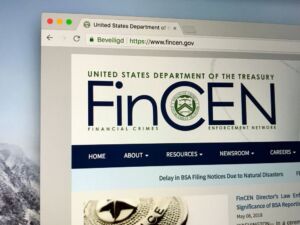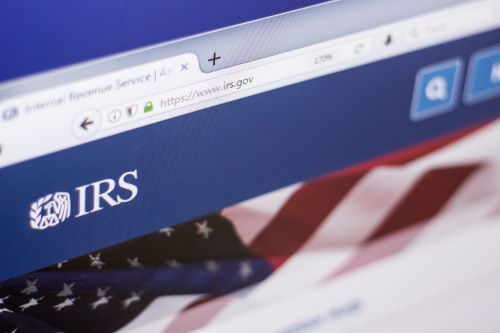IRS & Colorado Issue Tax Scam Warnings
 Tax season is an opportune time for fraudsters and bad actors to target Denver area businesses and individual taxpayers. As the number of taxpayers filing electronically increases it has created a target-rich environment for fraud to be committed. In fact, there were 7.8M reports of suspicious activities made to the IRS in 2022 alone. The activities included online scams such as phishing and smishing along with the use of threatening phone calls and fraudulent letters to demand immediate tax payment. These government imposter scams have become more prevalent and have prompted the IRS and the Colorado Attorney General’s Office to issue taxpayer warnings. To help clients, prospects, and others, Whipplewood CPAs have provided a summary of the key recommendations below.
Tax season is an opportune time for fraudsters and bad actors to target Denver area businesses and individual taxpayers. As the number of taxpayers filing electronically increases it has created a target-rich environment for fraud to be committed. In fact, there were 7.8M reports of suspicious activities made to the IRS in 2022 alone. The activities included online scams such as phishing and smishing along with the use of threatening phone calls and fraudulent letters to demand immediate tax payment. These government imposter scams have become more prevalent and have prompted the IRS and the Colorado Attorney General’s Office to issue taxpayer warnings. To help clients, prospects, and others, Whipplewood CPAs have provided a summary of the key recommendations below.
Online Scams
The IRS has warned taxpayers to be alert of fake communications posing to be from the IRS or other regulatory agencies. Often the communications come as emails or texts and attempt to get taxpayers to reveal valuable financial and personal information such as bank account numbers that can lead to identity theft. The most popular scams include:
- Phishing Emails – These are emails sent by fraudsters that appear to be from the IRS or other state tax agencies. These emails include false statements about phony tax refunds available or threats about legal/criminal charges arising from nonpayment penalties. The one component that ties them all together is the request for personally identifiable information needed urgently to resolve the issue.
- Smishing – Scammers have become more sophisticated and now have a reach that extends past email to text. Smishing refers to a text or SMS message that essentially uses the same techniques as outlined above. These include phrases like Unusual Activity Report, or Your Account is Now on Hold. There is usually a link to a fake website where a bank account and other information can be entered to resolve the matter.
It is critical not to fall victim to these common scam tactics. It is important to note that the IRS initiates most contact through regular mail and never initiates contact via email, tax or social media regarding a bill or tax refund.
Other Tax Time Scams
In addition to electronic means, scammers will also attempt to access such information through regular mail or via the phone. Known as government imposter scams, these tactics usually involve someone falsely presenting themselves as a member of the IRS, Colorado Department of Revenue, or other state agencies. These fraudsters use several tactics to obtain cooperation including threats of legal action for failure to comply.
When fraud attempts arrive through mail scammers use official-looking materials including IRS or Colorado Department of Revenue logos. When using the phone, there will be official-sounding titles, which are completely false, in an attempt to take advantage of most taxpayers’ desire to do the right thing. Unfortunately, these are all nefarious activities.
The Colorado Attorney General is clear that local and state agencies will never ask for personal information, send money, or make payments via wire transfers. If there is concern about potential fraud, it is important to directly contact the agency using the information listed on their website.
Contact Us
Awareness is the key to avoiding fraud. While most Denver businesses and individuals will not be impacted by these schemes, it is important to know how to detect such illicit activities. If you have questions about the information outlined above or need assistance with a tax or accounting issue, Whipplewood CPAs can help. For additional information call 303-989-7600 or click here to contact us. We look forward to speaking with you soon.
About the Author

Rick Whipple CPA
Rick’s career in public accounting began in 1978. He was a co-founder of WhippleWood CPAs in 1981 and became its CEO in 2004. His experience as an entrepreneur and small business owner over the span of 40 years is vital to his success as a CPA and small business advisor.



